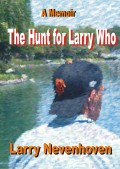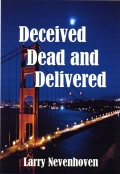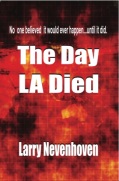
If you read my testimony above, you will see an insurance agent named Bill mentioned. His full name is Bill Sheridan. He is a true man of God, but also a great writer. The following is an excerpt from his memoir, which I recommend to everyone. It’s a great read and only $2.99 on Amazon.
MIRACLE IN PEW 24
I begged my mom to let me stay home.
“I’m sick, Mom. I really, truly am!”
She didn’t believe me for a minute. And with good reason. After all, she pointed out, I had already been sick every school day during this 1955 Brooklyn Dodger-New York Yankee World Series, and had miraculously healed on travel days and weekends.
“You, young man, are going to Mass and then to school. Enough of this fooling around.”
When she said “young man,” I know my goose was cooked. Mom always saved that for when she meant there was nothing left to discuss.
Why couldn’t she cut me some slack? I was eleven years-old and the Dodgers had already broken my heart so many times before. The ’51 Giants game in the Polo Grounds. That stupid Bobby Thomsen. Those creepy Yankees year after year. And having to face George Timlin, my good friend but Yankee fan, every fall and argue that Mickey Mantle was just lucky and my Bums “was robbed” by bad calls.
This was their year and the Dodgers couldn’t blow it again. Didn’t she understand that I couldn’t miss Game Seven? I just knew that Johnny Podres could do it. I just knew it. We would finally win.
And I could swagger into Mt. Carmel Catholic Grade School in Lawler, Iowa, with my head held high.
But no. She wouldn’t believe me. It was this Irish-Catholic thing about not missing Mass. Even for the Dodgers. I can’t even remember why there was Mass on a school day. It might have been a First Friday.
The nuns taught us that if we made Mass on nine consecutive First Fridays we would have a priest by our side when we died. As a kid, I always had this picture in my mind of my mom being really proud as I lay dying at a car wreck, wearing clean underwear, with a Father O’Brien or Monsignor Murphy administering me the last rites.
Or it may have been a Holy Day.
I just knew that Campy might knock a ninth-inning winner out of the park and I didn’t want to miss it.
Mom was right, of course. I wasn’t sick. Not the upchucking kind of sick anyway. Just the kind of sick that comes from knowing that The Duke, PeeWee, ‘Oisk,’ Junior, and the boys were finally gonna win a Series. And I was going to be stuck in Sister Mary Bernard’s sixth-grade classroom all day conjugating verbs and learning about the martyrs.
If only Dad hadn’t died a few years before. He would have understood. He would have let me have the flu one more time. Then I could see Junior Gilliam and Sandy Amoros finally win the Big One. But not Mom. She was a GIRL. She didn’t get it. And neither did my three brothers or two sisters. Not one of them stuck up for me.
They said, “He’s faking it Ma, and he should go to Mass and school just like the rest of us.” They thought it was funny that Mom knew I wasn’t really sick. Sometimes I hated my siblings. This was one of those times.
My fate was sealed. But I didn’t have to like it. And I could still whine and pout. I could skip breakfast, still pretending that I couldn’t hold anything down. If my life was going to be miserable, I could at least try to make their lives miserable, too. So, I did. I went to Mass still pretending that I really was sick.
And it happened. A real-life miracle. I swear on a stack of bibles. A gift from God. Like Paul on the road to Damascus. Like Moses and the burning bush. Like David when he dropped The Big G.
We were all kneeling in Pew 24 of Mt. Carmel Catholic Church. Pew 24 was halfway down the right side of the church from the back near the middle aisle. We paid something called pew rent to sit there.
I remember staring at the candles on the altar and everything getting blurry. And getting dizzy. And a strange sound. Father Delay’s back seemed to be swaying back and forth. I could hear a clunking noise and sensed commotion. Confusion.
Then, for a brief moment, total silence. Suddenly, I felt myself being carried out of church by Tom Cooney and Bob Emery. I remember it like it was yesterday. I had fainted! I had never fainted before and I’ve never fainted since. But on that day, when fainting is probably the only thing in the world that would have kept me home, I fainted!
Mom was in a tizzy. She was upset with herself for not believing me. I could vaguely hear her in my semi-conscious state. “He told me he was sick. He told me, but I didn’t believe him.”
It has now been 65 years and Mt. Carmel Catholic School has long since burned to the ground. Mt. Carmel Catholic Church has been torn down and replaced. And I still have no definitive assurance of why it all happened. Granted, I had not eaten breakfast and it was very warm in church. Perhaps that’s all there was to it.
But I have a better idea. Admittedly, it’s just a theory, but one that I like very much.
Could it be that God was a Brooklyn Dodger fan?
Being omniscient, He knew in advance that after the 1957 season they would be moving to Los Angeles and it would never be the same. And He knew that a little red-haired boy from Iowa could not bear to miss that game on television. So He let me gently collapse somewhere between the seat and the kneeler of Pew 24 in Mt. Carmel Catholic Church. In so doing, He gave me a glimpse of Heaven, a Dodger victory.
Later that afternoon I was in our living room watching our black and white Philco TV, cheering on my beloved Bums. I saw Sandy Amoros glide toward the left-field stands and make the most spectacular catch I’ve ever seen in my whole life, and then double Yankee Gil McDougal off first base to kill a rally! Johnny Podres went on to pitch a 2-0 shutout. Justice had been served on those Yankee Pinstripes; and I cried tears of joy.
My mom died a few years ago at age 87 and I’ve been thinking of her as yet another Major League season begins.
I’ll bet by now God has had time to clue her in about what really happened that morning. That she was right all along. I really wasn’t sick on that October day in 1955.
But He looked down and decided it was more important for me to finally see the Dodgers beat the Yankees than attend Sister Mary Bernard’s classes on what would turn out to be an unforgettable fall afternoon.
And maybe—just maybe—He’s arranged for Mom to meet Roy Campenella and Gil Hodges and Carl Furillo and Sandy Amoros and Walter Alston—and they’ve had a big laugh about it.
Just the thought of it makes me smile.
(Excerpt from Depot Street Memories…The Lawler Stories by Bill Sheridan)



















Uncle Phil was a Hero
Phil Fielder was a handsome seventeen-year old Iowan whose remaining boyhood years were set aside by World War II. Four older brothers enlisted soon after Pearl Harbor. He followed their lead by signing up on July 10, 1942. After boot camp, he attended airplane mechanic’s school and specialist’s training for P-38 fighter planes.
But like many other young men, Phil hated sitting on the sidelines, thousands of miles away from action so he volunteered for gunnery school. The heavy casualties in the air war over Germany caused his transfer orders to quickly pass through proper channels for his relocation to Pueblo, Colorado. The Army assigned him to a B-24 bomber crew as a flight engineer and a machine gunner after graduation.
In the midst of the Army’s hurry-up-and-wait schedule, Phil married Helen Kimler on October 24, 1943. Their honeymoon was brief, but fortunately, she was able to travel with him to Colorado. The months quickly passed until Phil was assigned to a bomber crew. Helen left for Iowa, pregnant with their soon arriving child, while Phil flew off to war.
During World War II, more than 18,300 B-24 bombers were manufactured in America. It was a clumsy looking four-engine airplane with twin tails and a nose wheel. The cruising speed was 200 miles per hour with a maximum rating of 300 miles per hour. Aptly named the Liberator, it was armed with ten .50 caliber machine guns and could carry a payload of 8,800 pounds of bombs.
Though fondly remembered by their ten-man crews, the B-24’s were anything but passenger friendly. Noisy, bumpy, cumbersome, awkward, cramped, and uncomfortable with no heat, no restrooms, no pressurized cabins, no padding on the iron seats, and no kitchen facilities. Temperatures were as low as fifty degrees below zero at times with winds gusting through the cabins from the open bomb bay doors and machine gun turrets. Each man used an oxygen mask at altitudes above 10,000 feet and wore two parachutes: front and back.
Phil’s ten-man crew was a part of the 15th Army Air Force and the 485th Bomber Group. Their ages ranged from nineteen to twenty-three years old. Captain Tom McDowell was a respected veteran at the ripe old age of twenty. Uncle Phil was the second youngest and the only married man on the crew.
Landing in Venosa, Italy, the B-24 crew flew their first mission on September 6, 1944. Thus, began their countdown towards a minimum of thirty-five bombing runs over enemy territory before being reassigned to less hazardous duties.
Thirty-five missions over Germany, Czechoslovakia, Yugoslavia, and Austria. Thirty-five flights bombing oil refineries, railroad yards, ammunition plants, ball bearing factories, and whatever else. Thirty-five trips through anti-aircraft fire filled with deadly flak so heavy it appeared to be black clouds. Thirty-five times taking off knowing one in three planes might not return that day. Thirty-five tests of courage far beyond what normal men could ever hope to bear. It was no wonder these crews became life-long friends after enduring such perils together.
On one particular mission, Phil’s B-24 came under heavy anti-aircraft fire just after dropping their bombs. A piece of flak tore a hole in the hydraulic reservoir tank, spraying oil all over the cabin. If left unrepaired, the bomb bay doors would remain open and the plane’s wheels could not be lowered into landing position when they returned to the base. Valuable seconds ticked off. Something had to be done or the plane would have to be ditched, forcing them to use their parachutes. A dangerous last resort for B-24 crews.
“See if you can do something! And be quick about it!” shouted Captain Tom to Uncle Phil.
Phil saw a small broom under the pilot’s seat. He grabbed it, broke the handle off, and made his way toward the hydraulic tank.
The trek to the rear was dangerous under normal conditions because there was no aisle. Just an eight-inch wide catwalk spanned the thin aluminum doors, but on that day, the bomb bay doors were wide open with high winds ripping through them. The plane flew at an altitude of twenty-eight thousand feet, with temperatures at forty degrees below zero. Slippery hydraulic oil covered everything, including the narrow catwalk.
Phil unhooked his front parachute pack and edged sideways over the long oily catwalk, much like a high wire walker in a circus. He crossed the open bomb bay doors to the leaking tank. Arriving there, he cut off a finger on his leather glove, shoved the broom handle into the lopped off piece, and rammed the jury-rigged wad into the tank’s gaping hole. It worked. The leak stopped.
Was there a band playing for our hero when he arrived back at the base? No. Did any reporters rush to write about his heroic act of courage? No. Were any medals of honor pinned on his chest? No. Did he really expect to receive any of this? No. Phil instead received the grateful thanks from the ones he considered the most important people in the war zone: his crewmembers.
Phil and his crew completed their quota of thirty-five bombing missions in April 1945 and then were reassigned back to the states. There he reunited with Helen and finally met his seven-month old son, Philip, Jr.
Uncle Phil summed up his actions on that day with the hydraulic reservoir by saying, “Somebody had to do it. It just turned out to be me.”
(Excerpt from The Hunt for Larry Who by Larry Nevenhoven, © 2014, Amazon eBook)
4 Comments
Filed under America, Commentary, Fourth of July, Inspirational, Uncategorized, Writing
Tagged as Christianity, Fourth of July, Heroism, Patriotism